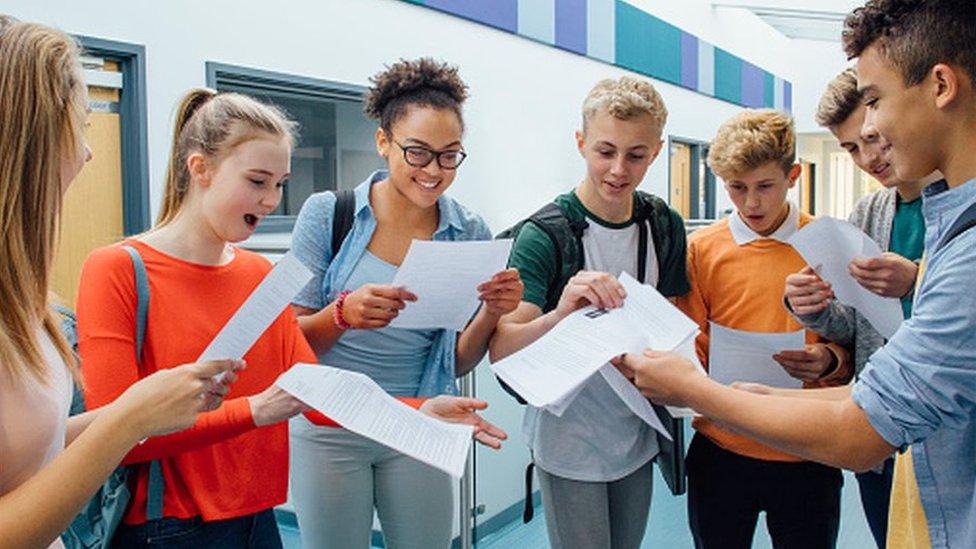Clampdown on luring students with unconditional offers
- Published
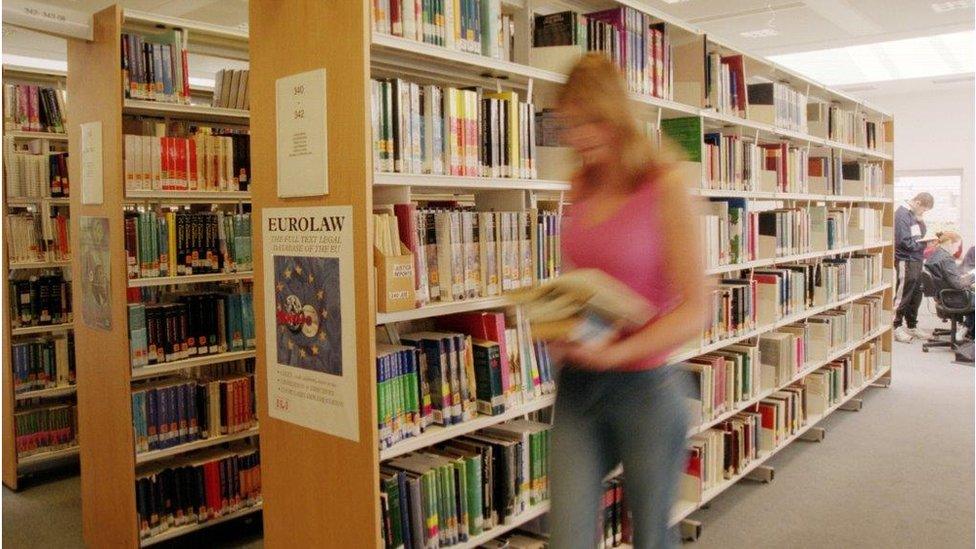
There has been a steep rise in unconditional offers
Universities that use unconditional offers to pressurise students into accepting places could be fined or even lose their university status, England's higher education watchdog says.
The Office for Students (OfS) compares the indiscriminate use of unconditional offers to pressure selling and says it could be in breach of consumer law.
There has been a steep rise in students offered places irrespective of grades.
But Sheffield Hallam University said such offers could help some students.
It makes hundreds of unconditional offers each year to students with high predicted A-level grades.
And vice-chancellor Chris Husbands said unconditional offers had a place, particularly for young people who "might otherwise not have the opportunity to study at a very high level".
"What unconditional offers can do when used in this way is to remove one element of pressure from the system and then ideally help students to achieve their potential and to thrive," he added.
'Conditional unconditional'
OfS researchers looked at the two different kinds of unconditional offer, those that:
guarantee a place, with no conditions
are unconditional only if an applicant makes the university their first choice
Overall, the number of unconditional offers to 18-year-olds rose from 3,000 in 2013 to 117,000 in 2018, while "conditional unconditional" offers rose from zero in 2013 to 66,000 by 2018.
Applicants who accepted an unconditional offer were more likely to miss their predicted grades by two or more grades, the researchers found.
Schools and colleges have voiced concerns that students with unconditional offers can underachieve in their exams as they "take their foot off the gas" during revision.
OfS chief executive Nicola Dandridge said she was concerned about the rapid rise in unconditional offers, "particularly those with strings attached, which are akin to pressure selling".
"It is plainly not in students' interests to push them to accept an offer that may not be their best option," she said.
"If we identify cases where unconditional offers are having an obvious negative impact on students' choices or outcomes, we are of course prepared to intervene."
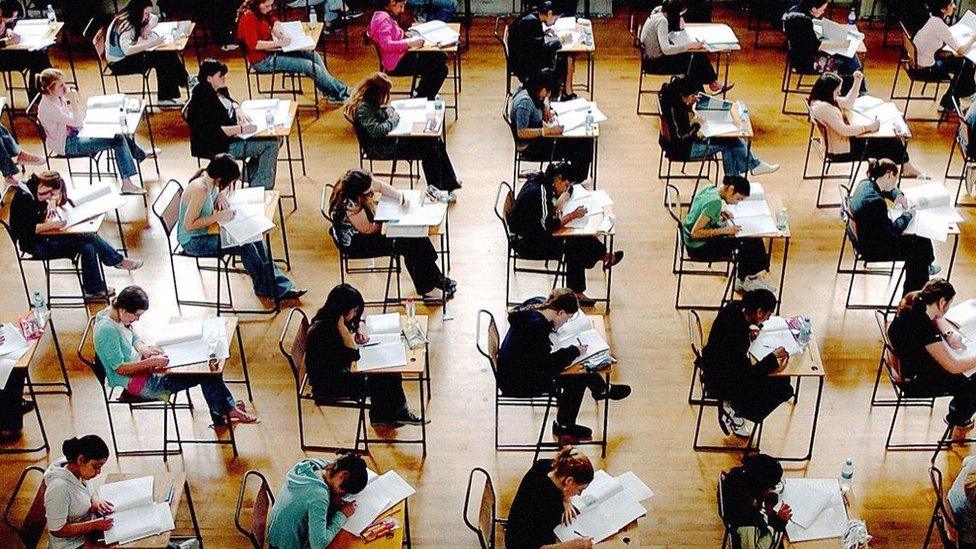
Applicants with unconditional offers often miss their predicted grades
The OfS said it would:
continue to monitor and assess the use of unconditional offers
intervene where students with unconditional or very low offers risked poor degrees or dropping out of their courses
encourage students to challenge "pressure selling practices"
take its own regulatory action, from imposing internal changes on universities to fines and deregistration.
On the online forum The Student Room some of this year's university applicants backed better regulation.
One reported having had four unconditional offers out of five applications but only "if I put them as my [first choice], which makes me believe that the universities do not actually care if I get the grade, instead, they just care about how many places they fill and want to guarantee as many as possible with the appeal of an unconditional offer".
Another said: "They can prey on the insecurities of strong students who could do better but are scared of missing a conditional offer."
Overall, 14% of students received unconditional offers last year - but this varied widely between types of institution.
Highly selective universities that demand very high A-level grades are least likely to make unconditional offers, with those that ask for lower grades more likely to make unconditional offers.
University data
The Universities and Colleges Admissions Service (Ucas) said that later in January it would, for the first time, publish details of the numbers unconditional offers made by each institution.
Greg Walker, chief executive of the MillionPlus group of universities, said unconditional offers were a longstanding part of the system.
"Higher education plays a major role in narrowing educational gaps that occur in primary and secondary education," he said, "and since the evidence shows that lower socio-economic status is correlated to lower prior attainment, using unconditional offers to support students with the potential to succeed is a valid and necessary approach to enable social equality."
But Matt Waddup, head of policy at the University and College Union, called for universities to shift to a system where students applied to university after they had received their grades, to make "unconditional offers redundant, bring us in line with the rest of the world and end the chaotic clearing scramble".
And David Hughes, chief executive of the Association of Colleges, said there were better ways to broaden the range of students attending university, such as "contextualised offers".
- Published31 October 2018
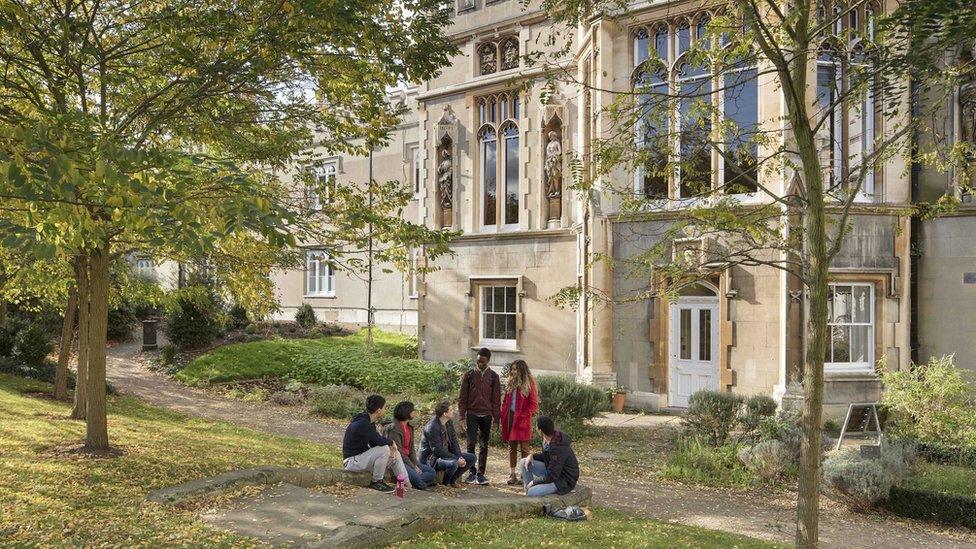
- Published29 November 2018
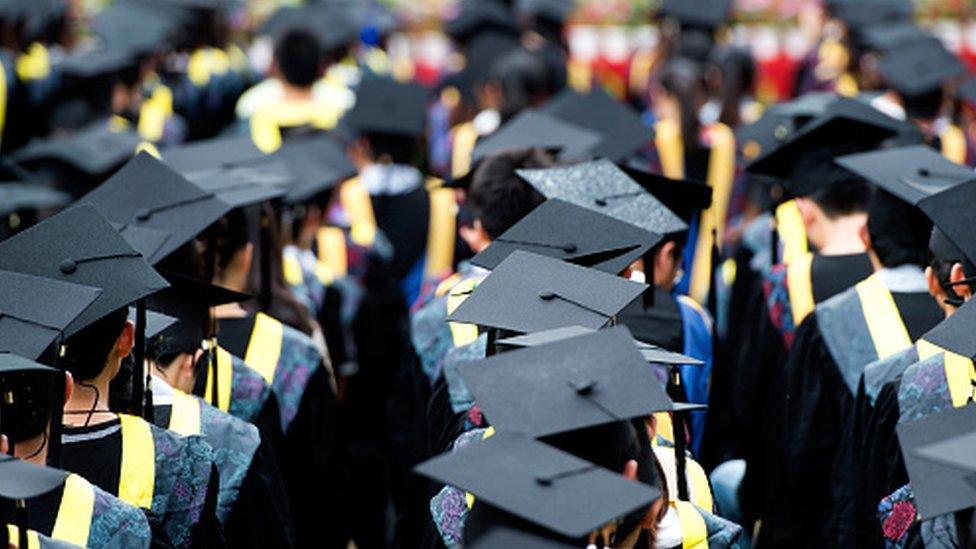
- Published26 July 2018
